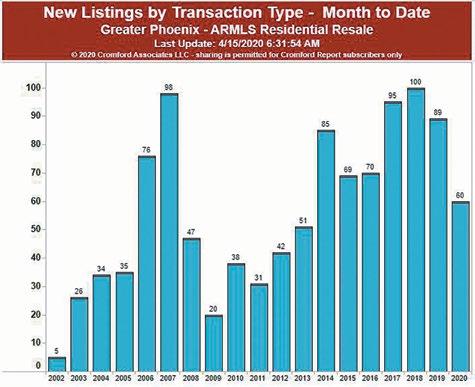HEALTH
FOUR THINGS TO DO RIGHT NOW IN A VOLATILE MARKET You often don’t hear much about the markets when they’re doing well. Life goes on as normal, and you have a sense of security that your financial future is in good hands. But when the market goes down, or becomes highly unpredictable, people tend to panic. That’s a natural reaction when you see your savings decline right in front of your eyes. You may have second thoughts about how you could have allocated your money differently, but what can you do about it now?
TELEHEALTH TIPS CONNECTED TO COVID-19 By Dr. Anne Docimo, Chief Medical Officer, UnitedHealthcare
A help you think through strategic ways to make your money last as long as you live. 3. DEVELOP A HOLISTIC FINANCIAL PLAN: You deserve a great retirement, and a great retirement starts with a plan. However, there’s a big difference between having a financial portfolio and having a financial plan. Sit down with a financial advisor to develop a sound strategy that is designed to hold up — regardless of what happens in the markets.
First, take a deep breath. You have resources in your corner to help you stabilize your retirement income avenues. No matter how much of your portfolio is tied to the market’s performance, here are four things to consider: 1. SCHEDULE A RISK EXPOSURE REVIEW: How much of your income can be affected by a market downturn? You may think you have a good idea, but do you honestly know? A Risk Exposure Review with a reputable financial advisor will tell you the truth and help give you clarity on whether now is a good time to make some adjustments or to stay the course.
4. REACH OUT FOR PROFESSIONAL FINANCIAL GUIDANCE! It’s normal to have questions and concerns about your financial situation, especially during a volatile market which includes significant downturns. You don’t have to answer your questions alone. When looking for a reputable financial advisor, it’s good to ask them how long they’ve been practicing in your neighborhood and if they can walk you through different retirement projections based on your circumstances. Ask if they are an independent advisor; not tied to any particular funds or financial products. Independent advisors are free to choose from a wide range of investment options and give advice based on your situation.
2. REQUEST A RETIREMENT INCOME ANALYSIS: This is nothing more than an analysis of the different sources of income you plan to use in retirement, which might include your 401(k), personal savings, Social Security or even a pension. With everything laid out on the table, this will
THIS IS A PAID ADVERTISEMENT Investment advisory services offered through AE Wealth Management, LLC (AEWM). AEWM and Oxford Retirement & Estate Planning, Inc. are not affiliated companies. Investing involves risk, including the potential loss of principal. No investment strategy can guarantee a profit or protect against loss in periods of declining values. 606046
We’re here to help you feel confident in your financial future.
623-933-9508
10699 W. Bell Rd. Sun City, AZ 85351 www.OxfordRetirement.com 16 • May 2020 • UPPER WESTSIDER
Landon Randall Vice President
Michael Oxford President
Investment Adviser Representatives
s the number of COVID-19 cases continue to mount, many Arizonans may be considering where to go for care if they develop potential symptoms. One important – yet potentially overlooked – resource is telehealth, which may enable people to connect 24/7 with a health care provider via a digital device and avoid potential exposure risks associated with in-person trips to health care facilities. Telehealth may be especially helpful as an initial option for medical advice related to COVID-19 and to help evaluate other possible health issues, as well as to assist the 20% of the U.S. population that lives in rural areas. To help people more effectively take advantage of this technology during the evolving COVID-19 situation, here are three tips to consider: • Identify Available Resources: To find telehealth resources, check with your care provider group, health benefit plan or employer. Nearly nine out of 10 employers offer telehealth visits to their employees, as do many Medicare and Medicaid health plans (in some cases by telephone), and 76% of hospitals connect patients and care providers using video or other technology. In some cases, people can access telehealth visits without cost sharing. Since the outbreak emerged, some health plans are now encouraging patients to use telephone or live videoconferencing (if available) to connect people with local network medical providers, waiving all cost sharing for COVID-19 related visits. This is especially important for people with certain complex conditions, such as diabetes or Parkinson’s disease, as it may enable them to “see” their own physician for acute or follow-up care related to their condition and help avoid potential exposure to the coronavirus during an in-person visit. • Understand Likely Next Steps: During a telehealth visit, care providers can give general medical advice to evaluate possible COVID-19 symptoms (fever, dry cough or difficulty breathing). While diagnostic testing services are not available through a telehealth
visit to help confirm a diagnosis for COVID-19 (if needed), care providers can help guide patients to a local care provider or public health authority for testing and follow-up care. Making these connections may help people take the appropriate steps in advance of an in-person test, which may help reduce the risk of your exposure and possible exposure to other patients and health care providers. For other illnesses (not COVID-19 related) that are treatable with medications, telehealth care providers can write prescriptions and discuss how to obtain them safely, such as using medication home delivery or drive-thru pickup at a local pharmacy. Due to the COVID-19 situation, it is important to note that people may anticipate potential wait times, as some care providers offering telehealth may be currently experiencing a surge in appointments. • Access Other Health Services: While elective health care procedures may be delayed to help enable care providers to focus on COVID-19 cases, telehealth may help people more effectively manage other health issues without the need to go out and risk potential exposure to the virus. Telehealth can help address myriad medical issues, including allergies, pinkeye, fevers, rashes and the regular flu. In addition, so much time at home can also contribute to behavioral health issues, so people should consider telehealth as a resource to connect with a qualified psychiatrist or psychologist. Importantly, people who experience a significant or serious medical issue should go to the emergency room. By considering these tips, people in Arizona may be able to more effectively use telehealth resources to help stay safe during these challenging times. yourupperwestsider.com







